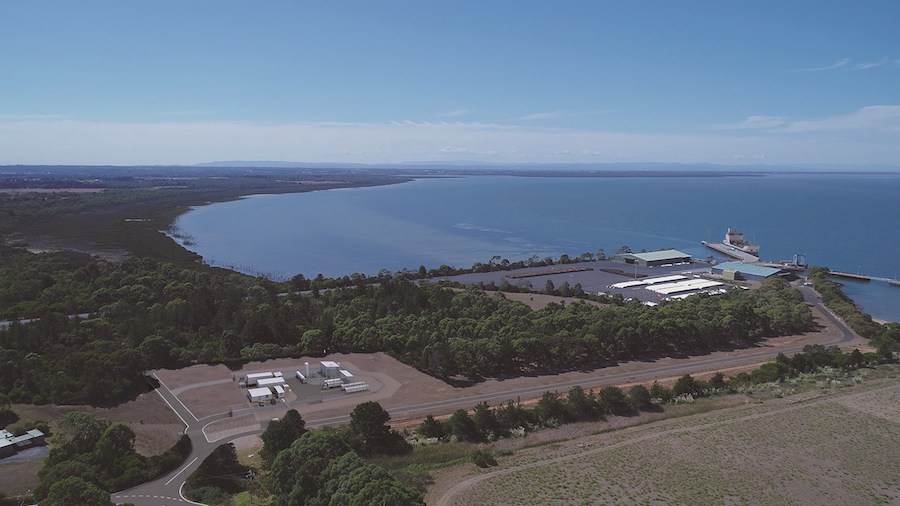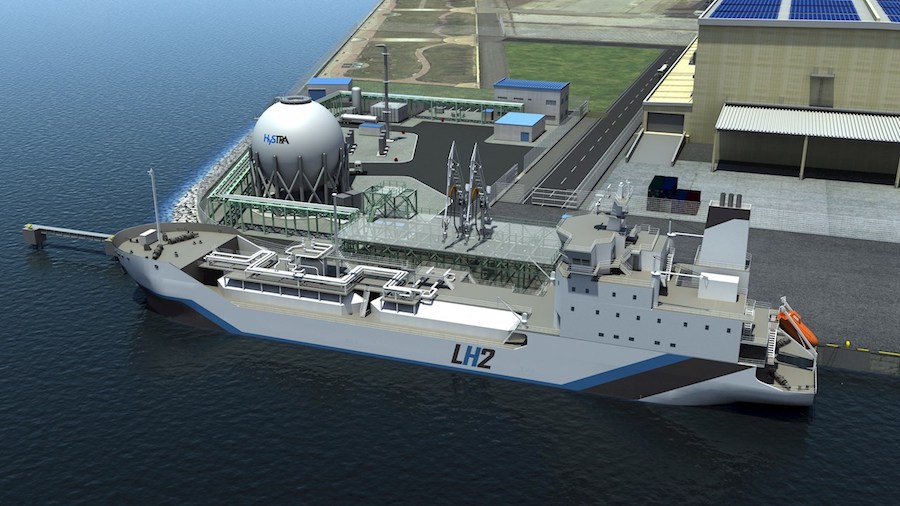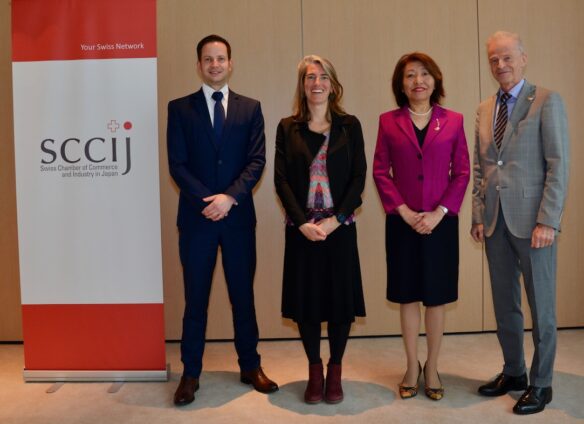Tokyo (SCCIJ) – ABB is supporting the energy transition of Japan, which seeks to ensure energy security by becoming the world’s first ”hydrogen society”. An Asia-Pacific clean energy project will use ABB automation, electrification, and instrumentation solutions to safely and efficiently produce clean hydrogen in Australia and transport it to Japan. Long-term, Japan envisions the fuel of hydrogen as integral to its clean energy mix.

ABB is providing instrumentation and electrification solutions to power Australia's first Hydrogen Liquefaction and Loading Terminal at the Port of Hastings in Victoria as part of the ''world-first'' HESC project (© Kawasaki Heavy Industries).
Integrated supply chain
The Hydrogen Energy Supply Chain pilot project is one of the world’s first efforts to liquefy and transport mass quantities of hydrogen across open waters. From 2020, the project will enter a one-year pilot phase, with the goal of safely and efficiently producing clean hydrogen in Australia and transporting it to Japan.
The pilot is supposed to demonstrate an integrated supply chain. Japan has the aspiration to use the hydrogen in fuel cell-powered electric vehicles and the power generation industry. ABB won an electrification and instrumentation contract in Australia and an automation contract in Japan from Kawasaki Heavy Industries.
“ABB is excited to collaborate on this world-first pilot to commercialize the technology for liquefying and transporting the hydrogen from Australia and deliver clean energy to Japan, while also reducing emissions,” said Peter Terwiesch, President of ABB’s Industrial Automation business.

In Japan, there is a liquid hydrogen receiving terminal in Kobe. ABB Bailey Japan Ltd., which has deep domain expertise in LNG cryogenic terminals, will provide an automation and safety system to support these local operations (© HYSTRA).
Production and liquefaction
At a newly constructed plant in the Latrobe Valley in Victoria, Australia, 160 tons of brown coal will be gasified, delivering up to three tons of hydrogen gas a year. The pilot supply chain will aim to demonstrate the production of hydrogen from syngas, which is formed by reacting brown coal with oxygen under pressures and temperatures.
In the gas refining process, the syngas will be purified to achieve a high purity specification for the transportation to Port of Hastings. Here, the hydrogen gas will be cryogenically cooled to -235° at a new Hydrogen Liquefaction and Loading Terminal, converting it into liquefied hydrogen for safer and more efficient transportation over long distances.
A project with many “Firsts”
The terminal will include state-of-the-art ABB supplied and integrated electrical equipment, including switchgear and distribution panels, power quality components, end-to-end engineering, project management, and commissioning services, as well as instrumentation, motor, and gearboxes. The small-scale pilot facility will be Australia’s first hydrogen liquefaction facility, with construction commencing earlier in 2019.
A storage container will hold the liquefied hydrogen before loading it onto a marine carrier, which will be the world’s first of its kind, specialized for the efficient and safe mass transit of hydrogen across the Asia–Pacific. The marine carrier will transport liquefied hydrogen from Australia to Japan every three months during the pilot phase.
The power of hydrogen
The HESC pilot is one of the world’s first efforts to commercialize technology to liquefy and transport hydrogen in a major Asia-Pacific green energy project. Hydrogen gives off no carbon emissions when used for electricity production in fuel cells or gas turbines. It can be produced with near-zero emissions from coal or gas, when coupled with carbon capture and storage (CCS), at a relatively low cost.
With the world’s fifth-largest total energy consumption, Japan considers hydrogen as integral to meeting its future transportation and power generation requirements. Hydrogen may offer the potential for fostering deep decarburization of the transport, power, industry, and residential sectors while strengthening Japan’s energy security and supporting the country’s holistic, multi-sector strategy, aimed at establishing an integrated hydrogen economy nationally.
Text: ABB (edited by SCCIJ)





























